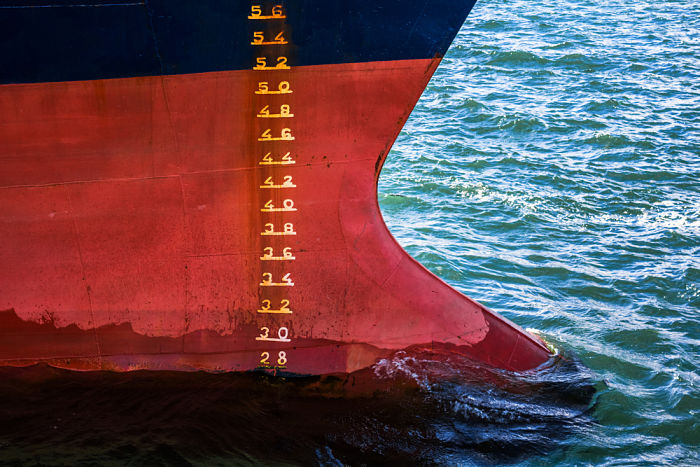
I am an experienced Captain. Mainly sailed on Chemical Tankers.

We first need to understand why we need to write the draft of the vessel in the bridge card and Pilot card. Or simply why we need to know the ship's draft at all.
We need to know the draft for two main reasons
- We need to be sure that ship is not overloaded at any time
- We need to be sure what is the under keel clearnce of the ship at all stages of a voyage.
There are three ways we generally read the vessel's drafts
- Visually
- From loadicator
- From draft Gauge (if fitted)
No one can question that draft that is read visually will be most accurate one. Loadicator and draft gauge has its limitations and the drafts read from these can only be used for reference.
The loadicator can show inaccurate drafts because
- The constants weights and location entered in the loadicator may not be accurate
- The fuel, lube oil, water, sludge and other consumable entered in the loadicator may not be accurate
- The water density entered may not be accurate
The accuracy of loadicator depends upon the accuracy of inputs we have given it.
Similarly, draft gauge has its own limitations. The accuracy of the draft gauges depends upon the factors like
- Control air pressure in the prescribed limits
- Draft Gauge pipes not blocked or not leaking
- proper calibration
For these reasons, drafts from loadicator and draft gauges are used for reference and planning. But where it requires us to know the accurate draft of the ship, we must read the drafts visually.
Top Contributors
Best Question of the Month
Asked By

Best Answer of the Month
A: Let us say that you are loading in tropical load line zone and destined for a port in summer load line zone. The entry point of summer load line zone...
Answered By


.jpg)

how can we compensate this difference that the draughts as calculated by the software are the same as the draughts as read.